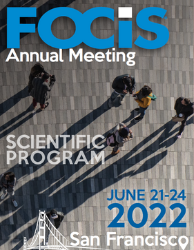Back
Autoimmune Diseases
Reemergence of Pathogenic B Cell Clones in Autoimmune Myasthenia Gravis Following B Cell Depletion Therapy
Wednesday, June 22, 2022
4:15 PM – 4:30 PM PT
Location: Salons 5/6
Kenneth Hoehn; Easton Ford; Melissa Smith; Corey Watson; Steven Kleinstein; Richard Nowak; Kevin O'Connor
Abstract Text: Myasthenia gravis (MG) is an autoantibody-mediated autoimmune disorder of the neuromuscular junction. Some patients with MG have pathogenic mAbs that recognize muscle-specific tyrosine kinase (MuSK). These autoantibodies are predominantly IgG4, recognize the Ig1-like domain of MuSK and originate from plasmablasts. Patients respond well to CD20-mediated B-cell depletion therapy (BCDT), but relapse. The mechanisms underlying relapse are not well understood. We developed a monomeric fluorescently labelled antigen to enrich for MuSK-specific B-cells and found that MuSK-reactive B-cells were rare within the circulation (around 1-2 per 10 million cells). We isolated two MuSK mAbs (2E6 and 6C6) that were of the IgG4 subclass and originated from plasmablasts. Both mAbs recognized the Ig1-like domain of MuSK and showed in vitro pathogenic capacity. Single cell gene expression profiling paired with B-cell receptor sequencing showed that CD20 was expressed by 25% of plasmablasts. Persistent clones were identified with B-cell repertoire tracing. Clonal variants of 2E6 were detected at several timepoints over 79 months and reemerged after BCDT-mediated remission, appearing several months prior to relapse. In summary, a subpopulation of plasmablasts express CD20 and are potential targets of CD20-mediated BCDT. A reservoir of very rare pathogenic MuSK autoantibody expressing clones survives treatment. These clones reemerge as autoantibody-producing plasmablasts, during B-cell re-population and can be detected in the circulation prior to manifestation of clinical relapse, thus, providing both a mechanistic understanding of relapse and a valuable candidate biomarker for relapse prediction.

